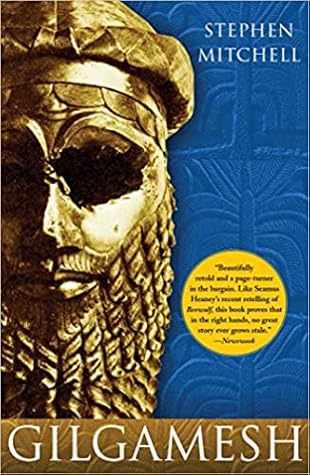More on this book
Community
Kindle Notes & Highlights
Wisdom isn’t an object; it can’t be grasped by words, nor can it be passed on.
The archetypal hero’s journey proceeds in stages: being called to action, meeting a wise man or guide, crossing the threshold into the numinous world of the adventure, passing various tests, attaining the goal, defeating the forces of evil, and going back home.
The more we try to fit Gilgamesh into the pattern of this archetypal journey, the more bizarre, quirky, and postmodern it seems.
Humans are born, they live, then they die, this is the order that the gods have decreed. But until the end comes, enjoy your life, spend it in happiness, not despair. Savor your food, make each of your days a delight, bathe and anoint yourself, wear bright clothes that are sparkling clean, let music and dancing fill your house, love the child who holds you by the hand, and give your wife pleasure in your embrace. That is the best way for a man to live.”
Can’t you see how fortunate you are? You have worn yourself out through ceaseless striving, you have filled your muscles with pain and anguish. And what have you achieved but to bring yourself one day nearer to the end of your days?
Though no one has seen death’s face or heard death’s voice, suddenly, savagely, death destroys us, all of us, old or young. And yet we build houses, make contracts, brothers divide their inheritance, conflicts occur—as though this human life lasted forever.


